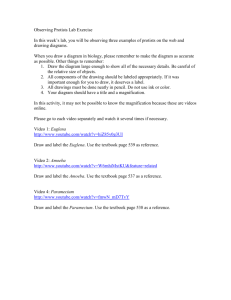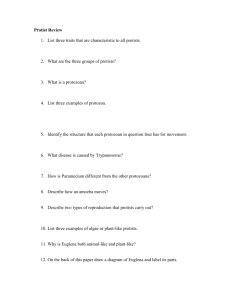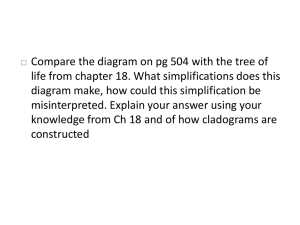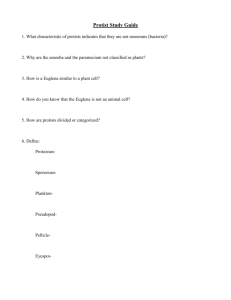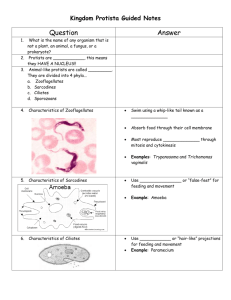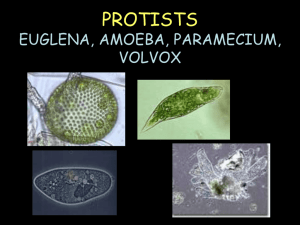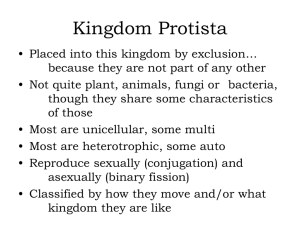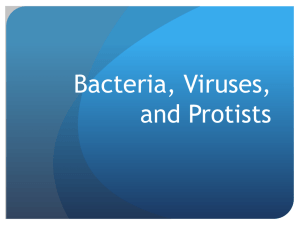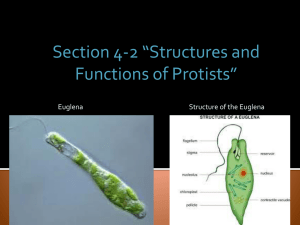Protists: Characteristics, Adaptations, and Reproduction
advertisement
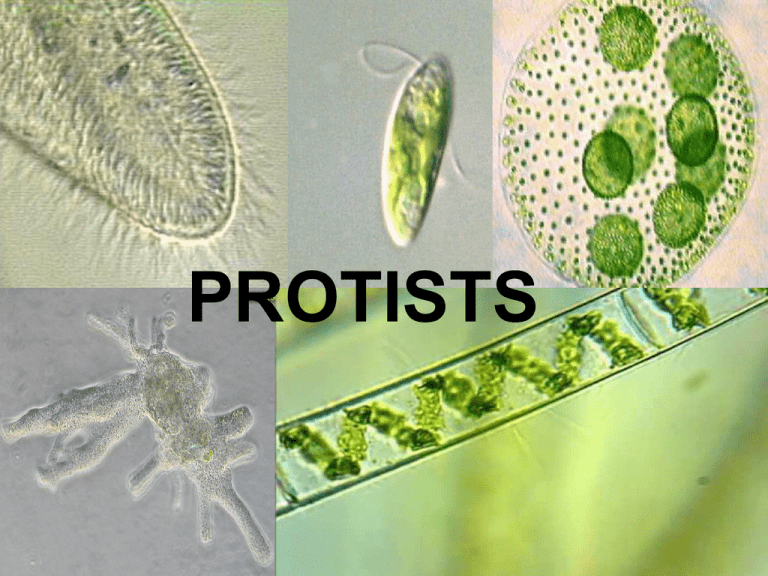
PROTISTS PROTIST’S What are Protists • Any group of EUKARYOTIC organisms belonging to the kingdom Protista. • Signal- celled organisms PROTISTS live in WATERY or MOIST environments. Adaptations Some protists, including paramecium and amoeba, have a Contractile Vacuole. This structure is used for water regulation, pumping out excess water. 3 types of movement • Flagella • Cilia • Pseudopod Adaptations • Protists have adaptive structures for movement including Cilia, Pseudopodia, and Flagella Paramecium movement using cilia: http://www.youtube.com/watch?v=HXcEAC Qv5-8 Amoeba movement using pseudopods: http://www.youtube.com/watch?v=PsYpngBG394 http://www.youtube.com/watch?v=-uxWx6bnQ4Y Euglena movement using flagella: http://www.youtube.com/watch?v=7DALQ-XLJ4Q Something cool : Euglena is a dietary supplement in the powder form. Adaptations • Some protists are AUTOTROPHS, they manufacture their own energy through photosynthesis or chemosynthesis. •Euglena have an EYESPOT: a photoreceptive organelle that allows the cells to sense LIGHT direction and intensity and respond to it by swimming either towards the light (positive phototaxis) or away from the light (negative phototaxis). Positive Phototaxis Their EYESPOT draws them towards sunlight so their CHLOROPLASTS can make food. (photosynthesis). Euglena are autotrophic AND…. Chemotaxis :Movement of organism toward or away from a chemical stimuli. • Euglena, and Amoeba are heterotrophic: they get their energy by consuming other organisms Start here http://www.youtube.com/watch?v=qpw2p1x9Cic •Amoeba ENDOCYTOSIS: phagocytosis = solid food pinocytosis = liquid food http://www.youtube.com/watch?v=W6rnhiMxtKU Paramecium are also heterotrophic. They get nutrition by sweeping food into their gullet, using digestive enzymes, and then exocytosis http://www.youtube.com/watch?v=a4a ZE5FQ284 PARAMECIUM •Most protists reproduce asexually by binary fission. http://footage.shutterstock.com/clip-236788-stock-footage-a-microscopicsequence-showing-paramecium-dividing-by-binaryfission.html?language=de •A few protists reproduce sexually by conjugation, exchanging genetic material Words to know for quiz! • Mitosis: Process of nuclear division by making new body cells (4 stages) Prophase, metaphase, anaphase and telophase. • Interphase: period of cell cycle in which most time is spent. G1, S and G2 • Daughter cells :cells that come from the parent cells dividing to make new cells (MOTHER & DAUGHTER. • Cytokinesis: Division of cytoplasm and the end of Mitosis. Activity One card stock show (fold 3 tabs like a brochure) how each organism (paramecium, amoeba, and euglena) moves, eats, and reproduces. Use pictures, words and labels!
